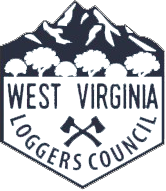Sustainable Forestry Initiative- Upcoming Logger Training Sessions

Timber harvesting operations in West Virginia must have at least one WV DOF Certified Logger on the site anytime the operation is active. Initial certification is good for a two year period that starts on the first day of July.
Recertification is required after initial certification expires. Recertification requires the completion of a few training sessions and the same $150 application that will again be good for a two year period that starts on the first day of July.
To apply for recertification, Certified Loggers must accrue at least 6 credits worth of training in the two years before applying for renewal. Two credits must be an update on WV Laws and Silvicultural BMPs.
The following summary outlines how loggers can meet these requirements for Rectification:
2 Credit Update on WV Laws and Silvicultural BMPs — In-Person or Online
- This 2-hour review and update is provided free of charge by the WV Division of Forestry, typically on a monthly basis at locations that rotate around the state. This update is the first two hours of the full day “Initial Certification” training course. Loggers applying for recertification need only complete the BMP update portion, however, they may stay for the full course to collect additional credits.
- Online recertification training (COMING SOON)
4 Credits of WV Division of Forestry Approved Logger Training
- Most forestry and logging training workshops, trainings, seminars, and others that cover topics related to the Sustainable Forestry Initiative’s core training areas could be approved.
- Preapproved courses will have certificates and rosters provided to the WV Division of Forestry for tracking.
- Contact the WV Division of Forestry with requests for credits for other programs. Approval will require a course roster, date, and an appropriately detailed program outline. The WV Division of Forestry will assess the request and assign the approved credit hours.
- Many WV Loggers Council and WVFA meetings will be pre-approved for credits
- Many Society of American Foresters (SAF) Category 1 Continuing Forestry Education credits will be accepted. Additional rosters and documentation may be required.
- Review the WV Division of Forestry’s list of Certified Loggers to see your current recorded credits
First Aid / CPR course
- An approved course must be completed and an official card issued with your name.
- Approved courses are available from the American Red Cross, American Heart Association, and the Mine Safety and Health Administration (must have form 500-23, First aid box checked).
- Please check with the Division of Forestry to confirm if a course if approved. OSHA also requires First Aid certification, so ensure that the course you choose, works for both.
- Most courses have a registration fee.
- $150 and application form: view the WV DOF Certified Logger Forms at https://wvforestry.com/logging/logging-forms/
The WV DOF publishes an updated schedule of their training courses on their website: https://wvforestry.com/event-directory/
A reference copy of the WV State Code section requiring logger certification is listed below:
WV State Code §19-1B-7
https://code.wvlegislature.gov/19-1B-7/
§19-1B-7. Certification of persons supervising timbering operations; timbering operations to be supervised; promulgation of rules.
(a) Any individual supervising any licensed timbering operation, or any individual supervising any timbering operation that is not exempted from the licensing requirements set forth in §19-1B-4 of this code, must be certified pursuant to this section.
(b) The director is responsible for the development of standards and criteria for education, training, and examination that must be successfully completed for persons to be certified to supervise any timbering operation. The certified logger shall attend a total of six hours of training every two years prior to recertification. The program for certified loggers shall, at a minimum, provide for education and training in the safe conduct of timbering operations, in first aid procedures, and in the use of best management practices to prevent soil erosion on timbering operations. The goals of this program will be to assure that timbering operations are conducted in accordance with applicable state and federal safety regulations in a manner that is environmentally sound and safe.
(c) The director shall provide programs using the resources of the division, other appropriate state agencies, educational entities, and other qualified persons. Each inspector under the jurisdiction of the chief shall attend a certification program free of charge and complete the certification requirements of this section.
(d) The director shall propose rules for legislative approval in accordance with §29A-3-1 et seq. of this code to effectuate the purposes of this article.
(e) Upon a person’s successful completion of the certification requirements, the director shall provide proof of the completion by issuing a numbered certificate and a wallet-sized card to that person. The division shall maintain a record of each certificate issued and the person to whom it was issued.
(f) The certified logger shall submit a fee of $150 for the initial certification application and the renewal application every two years thereafter.
(g) Every timbering operation that is required to be licensed under §19-1B-4 of this code must have at least one person certified pursuant to this section supervising the operation at any time the timbering operation is being conducted. All timbering operators shall be guided by the West Virginia forest practice standards and the West Virginia silvicultural best management practices to reduce sediment movement during a timber operation.
(h) The director shall, at no more than five-year intervals, convene a committee to review the best management practices to ensure that they reflect and incorporate the most current technologies. The committee shall, at a minimum, include a person researching silvicultural best management practices, a person in the field of silviculture, two loggers certified under this article, a representative of the Division of Water and Waste Management of the Department of Environmental Protection, and a representative of an environmental organization. The director shall chair the committee and may amend the best management practices according to the suggestions of the committee for the next certification cycle.
